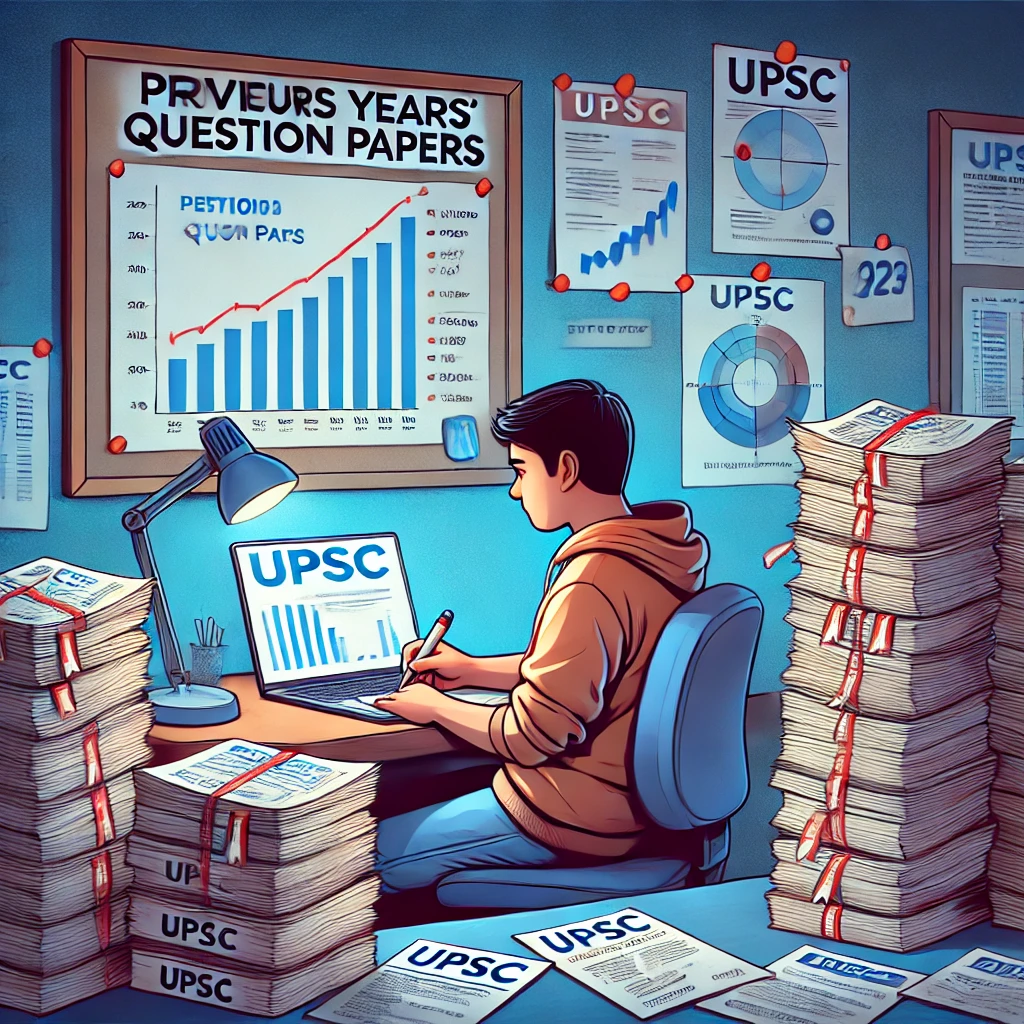How to Analyze Previous Years’ UPSC Question Papers
The Union Public Service Commission (UPSC) Civil Services Examination (CSE) is one of the toughest exams in India. To succeed, aspirants must have a well-structured strategy, and one of the most effective ways to prepare is by analyzing previous years’ question papers. This analysis helps candidates understand the exam pattern, question trends, and the weightage of various topics. In this blog, we will explore the step-by-step process of analyzing UPSC question papers and how to use this strategy for better preparation.
Join WhatsApp community for Free Notifications, Updates, Study Material, Mock Tests, Internship Updates, and Current Affairs - CLICK HERE TO JOIN
Why Analyzing Previous Years’ UPSC Question Papers is Important?
1. Understanding the Exam Pattern
UPSC has a well-defined but dynamic pattern that changes slightly over the years. By analyzing previous years’ question papers, candidates can understand the following:
- The structure of Prelims and Mains exams.
- The types of questions asked (direct, analytical, factual, opinion-based).
- The distribution of marks across different sections.
2. Identifying Important Topics
Certain topics are repeatedly asked in the UPSC exams. By reviewing past question papers, candidates can identify high-priority topics from different subjects such as:
- History: Modern Indian history, Freedom Struggle, Post-Independence history.
- Polity: Constitution, Governance, Judiciary.
- Economy: Budget, Economic Survey, Banking, Reforms.
- Geography: Physical Geography, Indian Geography, Environmental Geography.
- Current Affairs: National and International events of significance.
3. Recognizing the Trend of Questions
UPSC often follows a pattern in asking questions. Some topics gain importance over the years while others become less relevant. By analyzing trends, candidates can focus more on frequently asked topics.
4. Improving Answer Writing Skills
For the Mains exam, answer writing is crucial. Reviewing previous Mains questions helps candidates understand the expected structure and approach for answering descriptive questions effectively.
To Enroll in FIRST IAS INSTITUTE - Click Here
How to Analyze Previous Years’ UPSC Question Papers?
1. Collecting the Question Papers
Gather the last 10-15 years’ question papers for both Prelims and Mains. UPSC releases official question papers on its website, and various coaching institutes also provide compiled versions.
2. Categorizing the Questions by Subject
Once you have collected the papers, divide the questions based on subjects such as:
- History
- Geography
- Polity
- Economy
- Science & Technology
- Environment
- Current Affairs
- Ethics (for Mains) This classification helps in targeted preparation and understanding the weightage of different subjects.
3. Analyzing the Nature of Questions
For Prelims, note:
- The number of factual vs. conceptual questions.
- The proportion of static vs. current affairs-based questions.
- The difficulty level of the questions.
For Mains, examine:
- The word limit and marks distribution.
- The demand of the question (analytical, factual, opinion-based, case study).
- The recurring themes across different years.
4. Identifying Frequently Asked Topics
Mark topics that appear repeatedly in Prelims and Mains. These are the ‘hot topics’ that require special focus. For example, UPSC frequently asks about:
- Fundamental Rights and Directive Principles of State Policy in Polity.
- Indian freedom struggle events in History.
- Climatic regions and biodiversity in Geography.
- Banking and economic reforms in Economy.
5. Understanding the Weightage of Current Affairs
UPSC integrates current affairs with static topics. Analyzing past papers helps candidates understand how current events are linked to traditional subjects. For instance, a question about climate change can be linked to Geography as well as Current Affairs.
6. Practicing Answer Writing Based on Mains Questions
Candidates should attempt to answer previous years’ Mains questions to:
- Improve their structuring of answers (Introduction-Body-Conclusion format).
- Enhance their speed in writing quality answers within the time limit.
- Develop a habit of quoting relevant facts, reports, and examples.
Join WhatsApp community for Free Notifications, Updates, Study Material, Mock Tests, Internship Updates, and Current Affairs - CLICK HERE TO JOIN
Using Previous Years’ Question Papers to Enhance Preparation
1. Prelims Practice Through Mock Tests
After analyzing past Prelims papers, attempt full-length mock tests. This helps in:
- Time management and accuracy.
- Identifying weak areas.
- Developing the ability to eliminate wrong options.
2. Mains Answer Writing Practice
Pick a question from previous papers daily and write structured answers. Get feedback from mentors or peer groups to improve content and presentation.
3. Creating Notes Based on Past Trends
While analyzing question papers, prepare concise notes on frequently asked topics. This will help in quick revision before the exam.
4. Prioritizing Topics Based on Trend Analysis
Instead of studying everything in detail, focus on topics that are frequently asked. For example, topics like Fundamental Rights in Polity or the National Movement in History have a higher probability of appearing in the exam.
5. Understanding Examiner’s Expectations
UPSC questions are designed to test conceptual clarity, analytical ability, and depth of understanding. By analyzing previous years’ questions, candidates can tailor their preparation to meet these expectations.
Join WhatsApp community for Free Notifications, Updates, Study Material, Mock Tests, Internship Updates, and Current Affairs - CLICK HERE TO JOIN
Common Mistakes to Avoid While Analyzing UPSC Question Papers
1. Ignoring the Trends and Studying Everything Equally
Not all topics hold equal weightage. Focusing on frequently asked areas will yield better results than studying everything without prioritization.
2. Memorizing Instead of Understanding
UPSC questions require analytical thinking. Rote learning without conceptual clarity will not be beneficial.
3. Not Practicing Answer Writing Regularly
For Mains, just analyzing questions is not enough. Writing practice is essential for time management and structured responses.
4. Neglecting Current Affairs Integration
Many UPSC questions are a blend of static topics and current affairs. Candidates should incorporate current events into their answers effectively.
To Enroll in FIRST IAS INSTITUTE - Click Here
Conclusion
Analyzing previous years’ UPSC question papers is a powerful tool for strategic preparation. It provides insights into the exam pattern, frequently asked topics, and the nature of questions. By following a structured approach, candidates can enhance their preparation, improve answer writing skills, and increase their chances of success in the UPSC exam. Along with analysis, consistent revision, mock tests, and answer writing practice are crucial to cracking the exam. With the right strategy and disciplined preparation, clearing the UPSC CSE becomes a more achievable goal.


 firstiasofficial@gmail.com
firstiasofficial@gmail.com
Leave a Comment